Related Research Articles
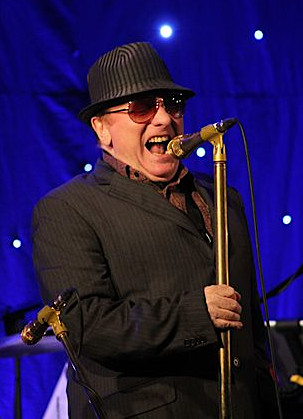
Sir George Ivan MorrisonOBE, known professionally as Van Morrison, is a Northern Irish singer, musician and songwriter whose recording career spans seven decades.

Moondance is the third studio album by Northern Irish singer-songwriter Van Morrison. It was released on 27 January 1970 by Warner Bros. Records. After the commercial failure of his first Warner Bros. album Astral Weeks (1968), Morrison moved to upstate New York with his wife and began writing songs for Moondance. There, he met the musicians that would record the album with him at New York City's A & R Studios in August and September 1969.

Astral Weeks is the second studio album by Northern Irish singer-songwriter Van Morrison. It was recorded at Century Sound Studios in New York during September and October 1968, and released in November of the same year by Warner Bros. Records.
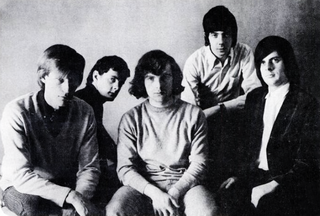
Them were a Northern Irish rock band formed in Belfast, Northern Ireland, in April 1964, most prominently known for the rock standard "Gloria" and launching singer Van Morrison's musical career. The original five-member band consisted of Morrison, Alan Henderson, Ronnie Milling, Billy Harrison and Eric Wrixon.
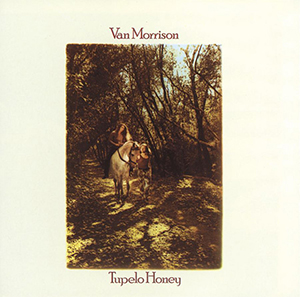
Tupelo Honey is the fifth studio album by Northern Irish singer-songwriter Van Morrison. It was released in October 1971 by Warner Bros. Records. Morrison had written all of the songs on the album in Woodstock, New York, before his move to Marin County, California, except for "You're My Woman", which he wrote during the recording sessions. Recording began at the beginning of the second quarter of 1971 at Wally Heider Studios in San Francisco. Morrison moved to the Columbia Studios in May 1971 to complete the album.

Veedon Fleece is the eighth studio album by Northern Irish singer-songwriter Van Morrison, released on 5 October 1974. Morrison recorded the album shortly after his divorce from wife Janet (Planet) Rigsbee. With his broken marriage in the past, Morrison visited Ireland on holiday for new inspiration, arriving on 20 October 1973. While there he wrote, in less than three weeks, the songs included on the album.

His Band and the Street Choir is the fourth studio album by Northern Irish singer-songwriter Van Morrison. It was released on 15 November 1970 by Warner Bros. Records. Originally titled Virgo's Fool, Street Choir was renamed by Warner Bros. without Morrison's consent. Recording began in early 1970 with a demo session in a small church in Woodstock, New York. Morrison booked the A&R Studios on 46th Street in New York City in the second quarter of 1970 to produce two sessions of songs that were released on His Band and the Street Choir.

Beautiful Vision is the thirteenth studio album by Northern Irish singer-songwriter Van Morrison, released in February 1982. It continued Morrison's departure from R&B at the time, instead favoring Celtic folk and American jazz in its music. As with many of Morrison's recordings, spirituality is a major theme and some of the songs are based on the teachings of Alice Bailey. Other songs show Morrison's Celtic heritage and reminiscence of his Belfast background.

Poetic Champions Compose is the seventeenth studio album by Northern Irish singer-songwriter Van Morrison, released in 1987 on Mercury Records. It received generally positive reviews from critics, most of whom viewed it as adequate mood music.

Irish Heartbeat is the eighteenth studio album by Northern Irish singer-songwriter Van Morrison and is a collaboration with the traditional Irish musical group the Chieftains, released in 1988. It was recorded at Windmill Lane Studios in Dublin, Ireland, and reached number 18 in the UK album charts.
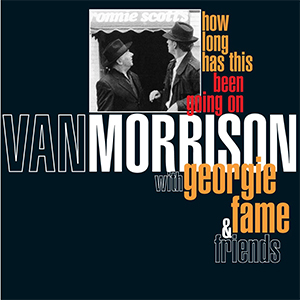
How Long Has This Been Going On is the twenty-fourth studio album by Northern Irish singer-songwriter Van Morrison, "with Georgie Fame and Friends", released in December 1995 in the UK. It charted at No. 1 on Top Jazz Albums.

"Domino" is a hit song written by Northern Irish singer-songwriter Van Morrison. It is the opening track of his fourth studio album, His Band and the Street Choir. This song is Morrison's personal musical tribute to New Orleans R&B singer and pianist Fats Domino.
"Cyprus Avenue" is a song written by Northern Irish singer-songwriter Van Morrison and included on his 1968 album Astral Weeks. It refers to Cyprus Avenue, a residential street in Morrison's hometown of Belfast, Northern Ireland.
"Slim Slow Slider" is the closing track on the 1968 album Astral Weeks by Northern Irish singer-songwriter Van Morrison.
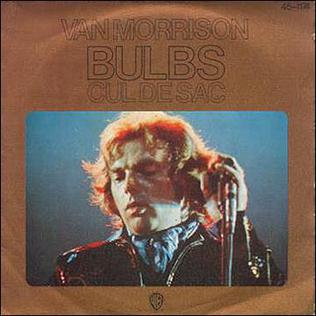
"Bulbs" is a song written by Northern Irish singer-songwriter Van Morrison. It was the only single to be taken from his 1974 album Veedon Fleece, with a B-side of "Cul de Sac" for the US release and "Who Was That Masked Man" for the UK release.

"Call Me Up in Dreamland" is a song that was written by Northern Irish singer-songwriter, Van Morrison and included on his 1970 album, His Band and the Street Choir. Brian Hinton describes the song as "life on the road, with 'radio' as a verb and laughing sax."

"Ivory Tower" is a song written by Northern Irish singer-songwriter Van Morrison and included on his 1986 album, No Guru, No Method, No Teacher. The song was also released as a single with the B-side "A New Kind of Man", from his previous album A Sense of Wonder. It charted at No. 21 on the US Mainstream Rock Tracks in 1986.
"Goin' Down Geneva" is a song written by Northern Irish singer-songwriter Van Morrison and is the opening track on his 1999 album, Back on Top.
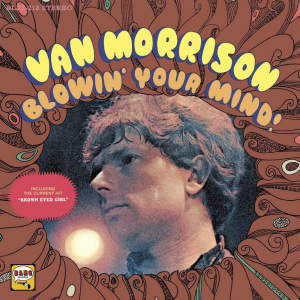
Blowin' Your Mind! is the debut studio album by Northern Irish musician Van Morrison, released in 1967. It was recorded 28–29 March 1967 and contained his first solo pop hit "Brown Eyed Girl". It was included by Rolling Stone as one of the 40 Essential Albums of 1967.

"Ro Ro Rosey" is a song written by Van Morrison that was written and recorded for Bang Records owner and producer Bert Berns and released on his 1967 album Blowin' Your Mind!. It was also released as the follow-up single to "Brown Eyed Girl."
References
- Collis, John (1996). Inarticulate Speech of the Heart Little Brown and Company, ISBN 0-306-80811-0
- Hinton, Brian (1997). Celtic Crossroads: The Art of Van Morrison, Sanctuary, ISBN 1-86074-169-X
- Heylin, Clinton (2003). Can You Feel the Silence? Van Morrison: A New Biography, Chicago Review Press, ISBN 1-55652-542-7